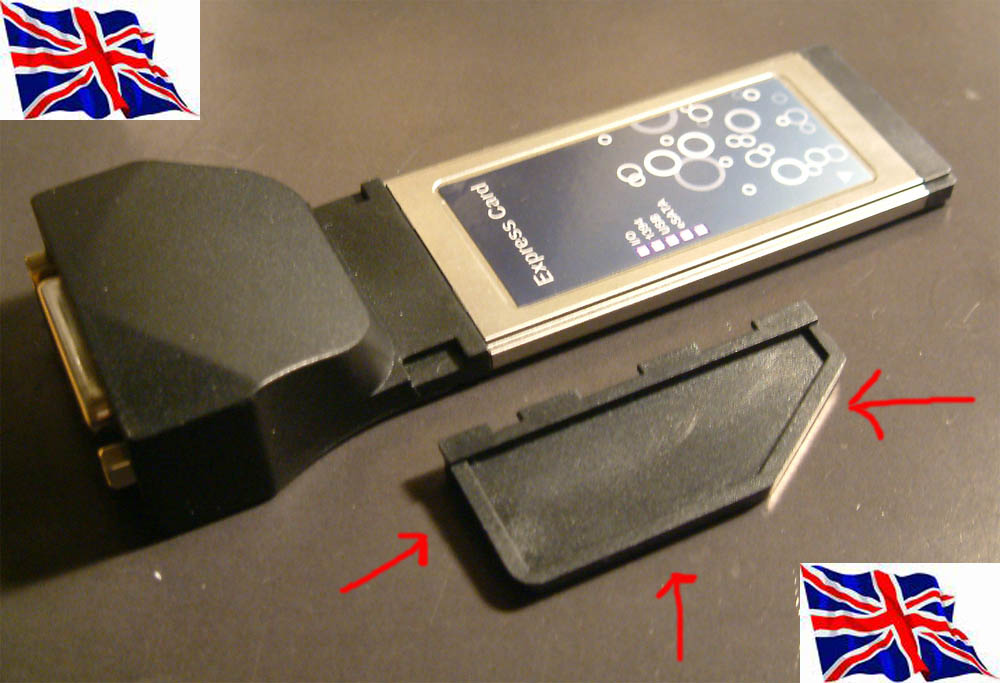
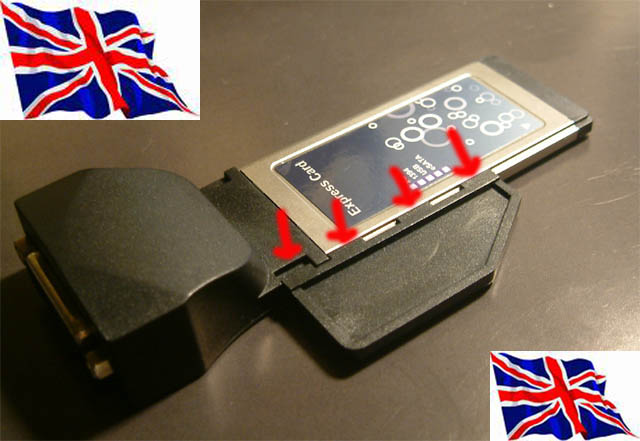
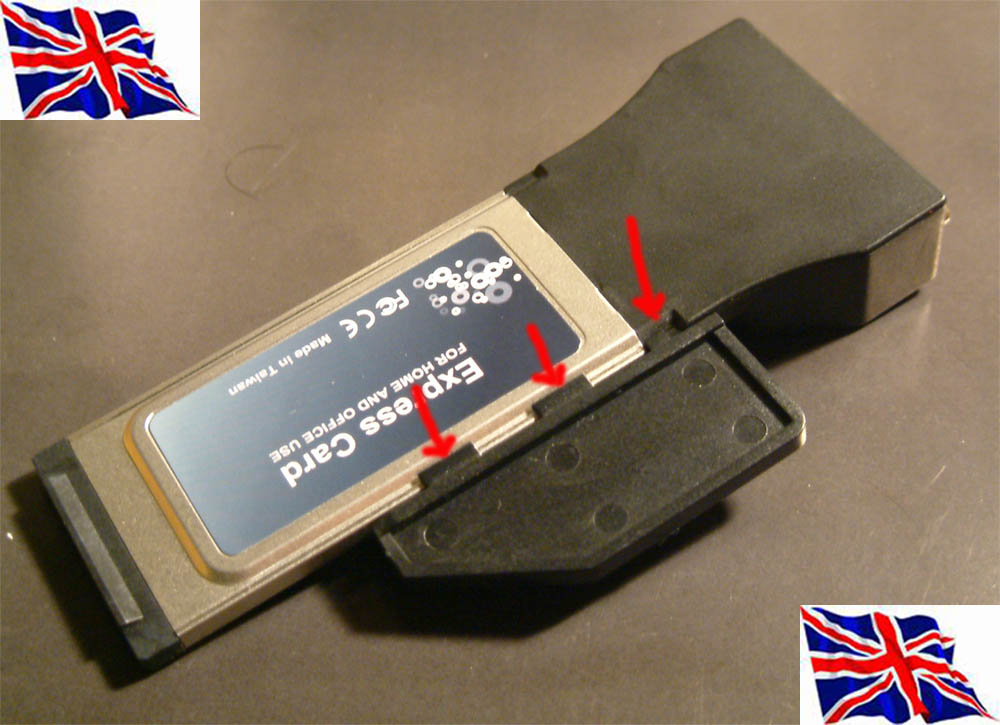
Contents
· Description
o Overview
o Windows 2000 / XP
o Windows ME
o Windows NT
o Windows 9*
Description
Overview
'How do I clean a Windows system of Oxford Semiconductor drivers?'
This will normally have arisen when a similar card is being installed into a PC but has fewer capabilities than the previously
installed card. For example a PCI952 card is first installed as a 2 serial 1 parallel port card and is then reconfigured to be a 1
serial 1 parallel port card by editing the oxpci.inf file. Windows will always configure the card as a 2 serial 1 parallel port card.
Windows XP
1. Go to the folder \Win\System32 and delete anything that begins with OX (but NOT oxfwapi.dll) e.g. oxui.dll
2. Go to the folder \Win\System32\Drivers and delete anything that begins with OX (but NOT oxminifw.sys): e.g.
oxmf.sys, oxmfuf.sys, oxser.sys, oxpar.sys (may be more files)
3. Go to the folder \Win\Inf look for any files beginning OX... and delete them.
Note:
If there are no OX*.inf files in \Win\Inf there will be oem*.inf files. Open each one in turn and make a note of any that
have references to Oxsemi Devices (Windows copies and renames inf files to oemxx). You MUST check the files... not
all are necessarily OxSemi. For any oemxx.inf files that are OxSemi there is likely to be an oemxx.pnf (so delete both
the .inf and .pnf).
4. It should not be necessary to do this. In the windows registry there a key
HKEY_LOCAL_MACHINE\SYSTEM\CurrentControlSet\Enum\PCI which lists all the enumerated PCI devices (there
are similar directories for USB, PCMCIA etc). Obviously any entry in the PCI tree starting VEN_1415 is OxSemi. It
should not be necessary to remove these registry entries, but you should be OK to remove any VEN_1415 entries (as
long as the PC in question has no other OxSemi products installed).
Windows 2000
1. Go to the folder \WinNT\System32 and delete anything that begins with OX (but NOT oxfwapi.dll) e.g. oxui.dll
2. Go to the folder \WinNT\System32\Drivers and delete anything that begins with OX (but NOT oxminifw.sys): e.g.
oxmf.sys, oxmfuf.sys, oxser.sys, oxpar.sys (may be more files)
3. Go to the folder \WinNT\Inf look for any files beginning OX... and delete them.
Note:
If there are no OX*.inf files in \Win\Inf there will be oem*.inf files. Open each one in turn and make a note of any that
have references to Oxsemi Devices (Windows copies and renames inf files to oemxx). You MUST check the files... not
all are necessarily OxSemi. For any oemxx.inf files that are OxSemi there is likely to be an oemxx.pnf (so delete both
the .inf and .pnf)..
4. It should not be necessary to do this. In the windows registry there a key
HKEY_LOCAL_MACHINE\SYSTEM\CurrentControlSet\Enum\PCI which lists all the enumerated PCI devices (there
are similar directories for USB, PCMCIA etc). Obviously any entry in the PCI tree starting VEN_1415 is OxSemi. It
should not be necessary to remove these registry entries, but you should be OK to remove any VEN_1415 entries (as
long as the PC in question has no other OxSemi products installed).
Windows ME
1. Go to the folder \WinNT\System32 and delete anything that begins with OX (but NOT oxfwapi.dll) e.g. oxui.dll
2. Go to the folder \WinNT\System32\Drivers and delete anything that begins with OX (but NOT oxminifw.sys): e.g.
oxmf.sys, oxmfuf.sys, oxser.sys, oxpar.sys (may be more files)
3. Go to the folder \WinNT\Inf look for any files beginning OX... and delete them.
Note:
If there are no OX*.inf files in \Win\Inf there will be oem*.inf files. Open each one in turn and make a note of any that
have references to Oxsemi Devices (Windows copies and renames inf files to oemxx). You MUST check the files... not
all are necessarily OxSemi. For any oemxx.inf files that are OxSemi there is likely to be an oemxx.pnf (so delete both
the .inf and .pnf).
4. It should not be necessary to do this. In the windows registry there a key
HKEY_LOCAL_MACHINE\SYSTEM\CurrentControlSet\Enum\PCI which lists all the enumerated PCI devices (there
are similar directories for USB, PCMCIA etc). Obviously any entry in the PCI tree starting VEN_1415 is OxSemi. It
should not be necessary to remove these registry entries, but you should be OK to remove any VEN_1415 entries (as
long as the PC in question has no other OxSemi products installed).
Windows NT
1. Go to the folder \Winnt\System32 and delete anything that begins with OX (but NOT oxfwapi.dll) e.g. oxui.dll
2. Go to the folder \Winnt\System32\Drivers and delete anything that begins with OX (but NOT oxminifw.sys): e.g.
oxmf.sys, oxmfuf.sys, oxser.sys, oxpar.sys (may be more files)
3. Go to the folder \Winnt\Inf look for any files beginning OX... and delete them.
Note:
You MUST check the files... not all are necessarily OxSemi.
4. It should not be necessary to do this. In the windows registry there a key
HKEY_LOCAL_MACHINE\SYSTEM\CurrentControlSet\Enum\LEGACY_OXSER which lists all the enumerated Oxford
devices (there are similar directories for USB, PCMCIA etc). It should not be necessary to remove these registry
entries, but you should be OK to remove any of the OXFORD entries (as long as the PC in question has no other
OxSemi products installed).
Windows 9*
For the Windows 9* products the following needs to be done:
1. Go to the folder \Windows\System and delete anything that begins with OX (but NOT oxfwapi.dll) e.g. oxui.dll
2. Go to the folder \Windows\System\Drivers and delete anything that begins with OX (but NOT oxminifw.sys): e.g.
oxmf.sys, oxmfuf.sys, oxser.sys, oxpar.sys (may be more files)
3. Go to the folder \Windows\Inf look for any files beginning OX... and delete them.
Note:
Open each one in turn and make a note of any that have references to Oxsemi Devices (Windows copies and renames
inf files to oemxx). You MUST check the files... not all are necessarily OxSemi.
4. Go to the folder \Windows\Inf\Other this will contain the OEM files
Note:
Open each one in turn and make a note of any that have references to Oxsemi Devices (Windows copies and renames
inf files to oemxx). You MUST check the files... not all are necessarily OxSemi. For any oemxx.inf files that are OxSemi
there is likely to be an oemxx.pnf (so delete both the .inf and .pnf).
Intel D525MW mother board not detect our Mini PCIe card, you can do a little job make it work fine
there are 2 ways can do this job,
1. short circuit the Mini PCIe socket 2 pin , if the first one will break your warranty you can do the second one.
2. short circuit our card 2 pin
After that all of our Mini PCIe card work fine now. (Mini PCIe 1394a+b, USB 3.0, SATA II, SATA III, Ethernet, 422/485, Serial, Serial + Parallel).
1. find the mini PCI express socket
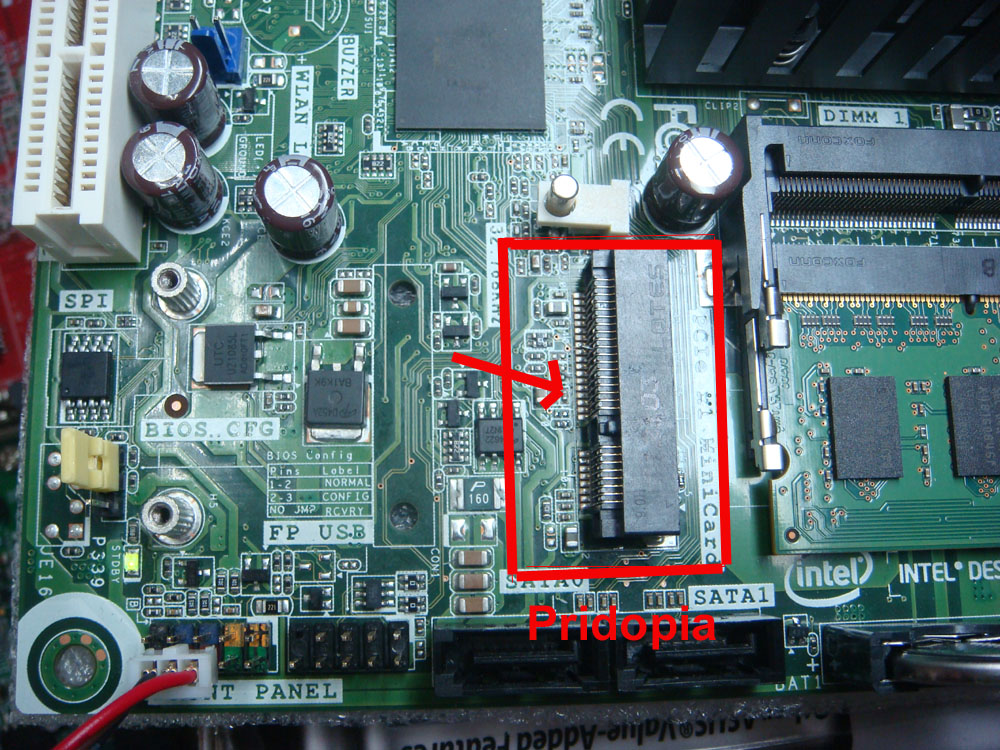
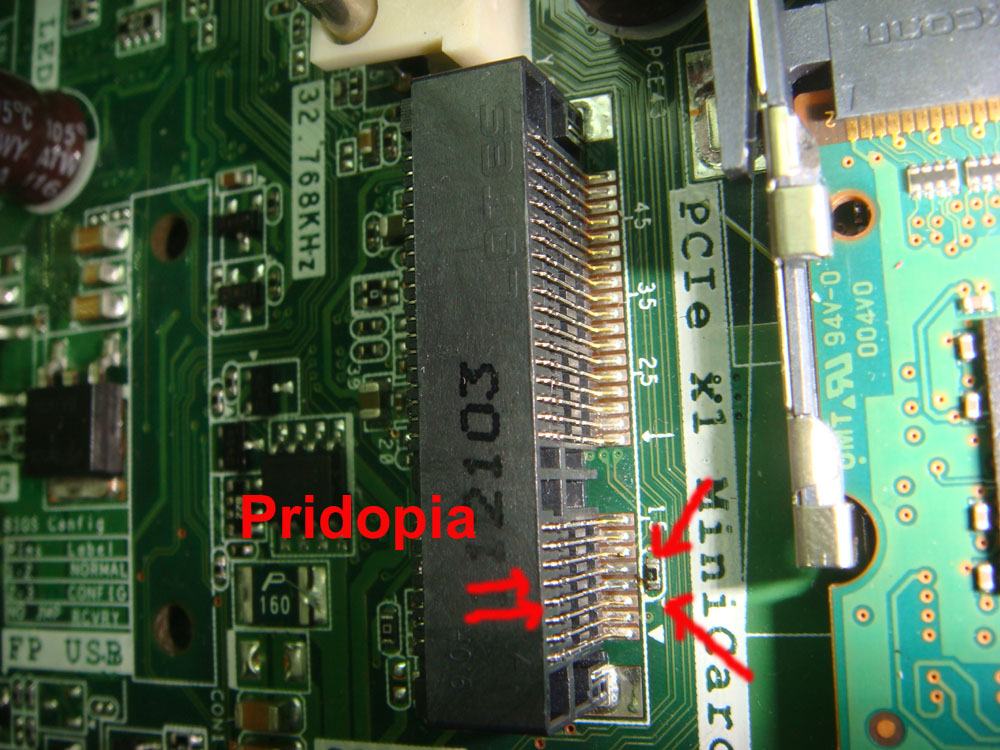
2. Short circuit pin7 & pin 9
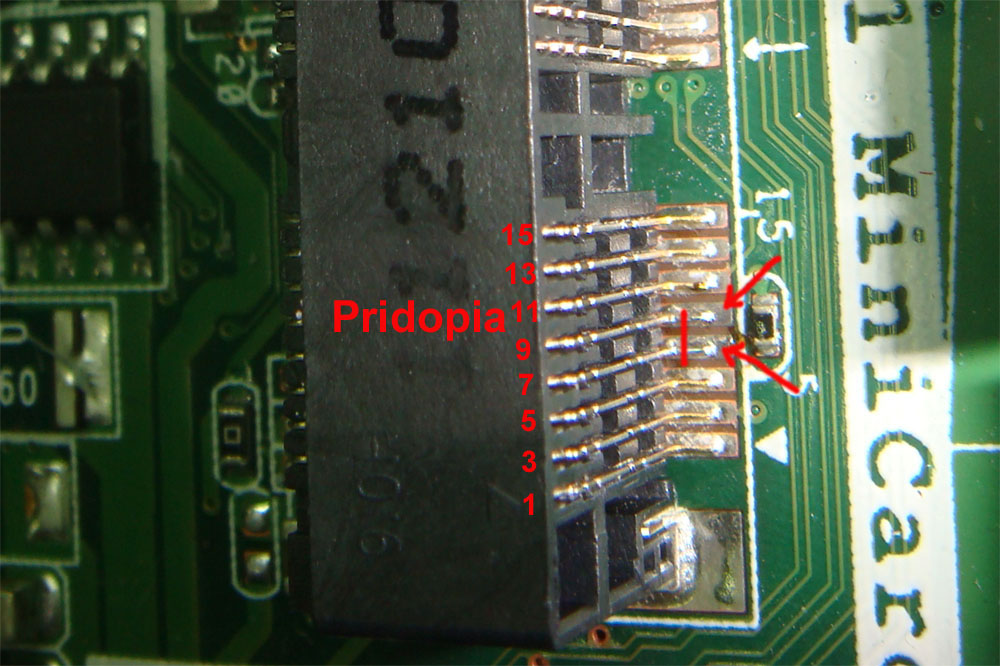
2. short circuit our card pin7 & pin 9 . (the example is Mini PCI Express 2 Port SATA )
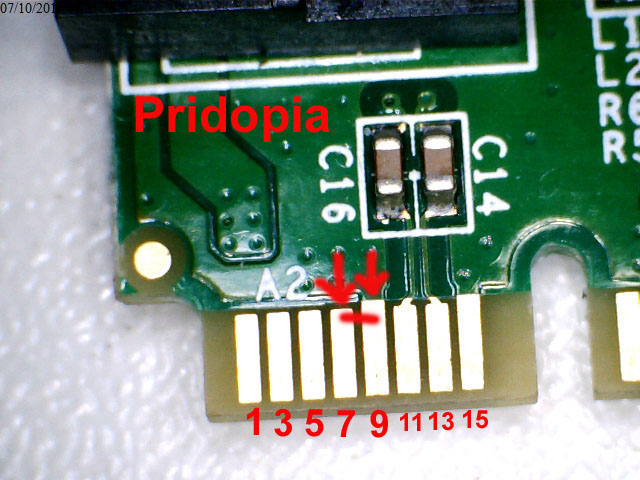
1. Use the soldering tape cover the area
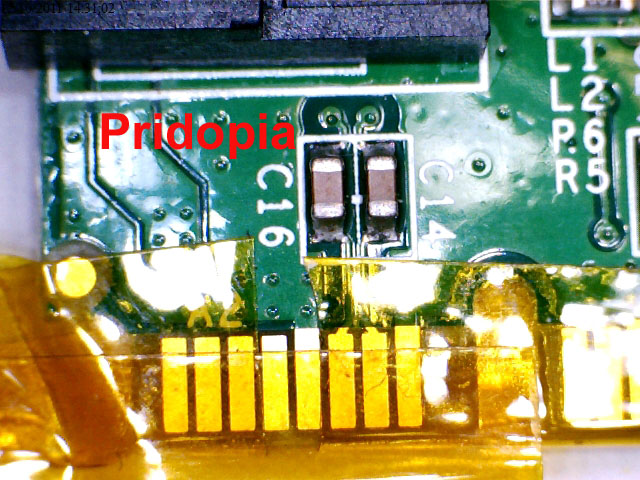
2. Remove the paint from PCB
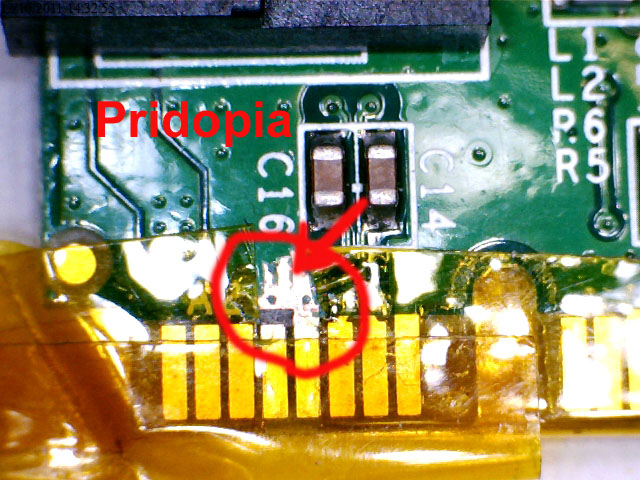
3. soldering
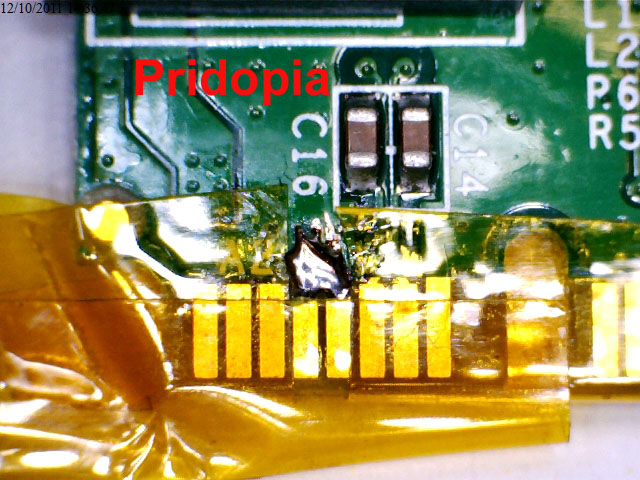
4. finished
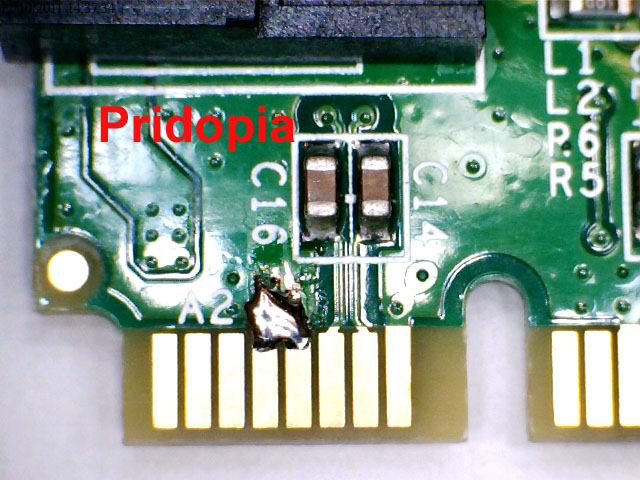
This is another way to do the MOD. 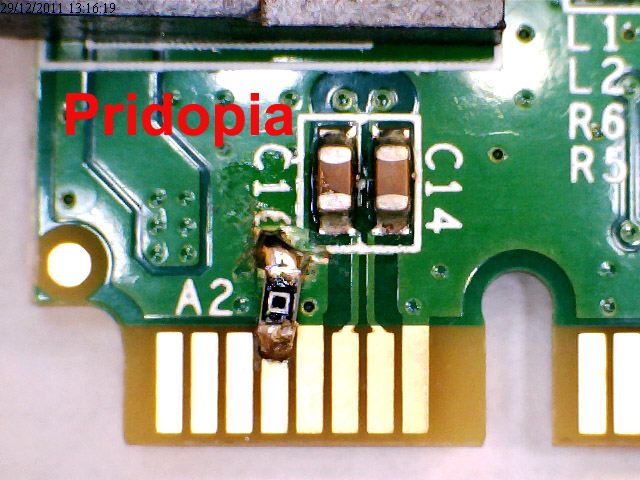
|
All of our Mini PCIe card working fine with ASUS P5b mother board , include Mini PCIe SATA III, SATA II, USB 3.0, 1394a+b , Ethernet, Serial x1, Serial x2 , Serial x4 serial x1 +Parallel x1, Parallel x1, 422/485 |
 |
 |
 |
| Win8 Test Products
SATA III SATA II USB 3.0 1394 a+b Ethernet
1P 1S 1S1P 2S 4S 422/485
1. Mini PCIe SATA III (Asmedia 1061 chip) in Win8 /32
2. Mini PCIe SATA II (Silicon Image 3132 chip) in Win8 /32
3. Mini PCIe Ethernet (Jmicron 250 chip) in Win8 /32 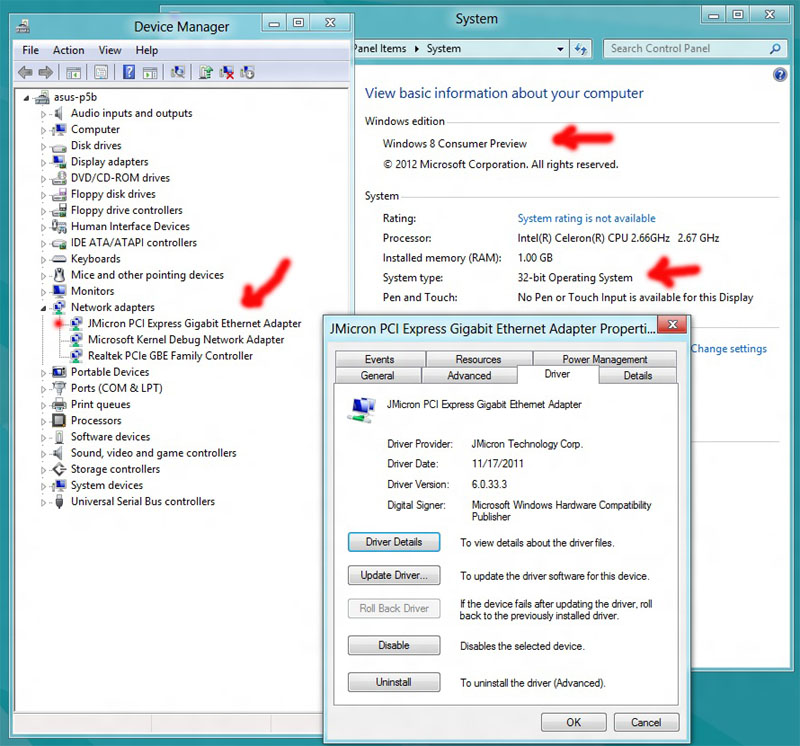
4. Mini PCIe USB 3.0 (NEC 720200 chip) in Win8 /32 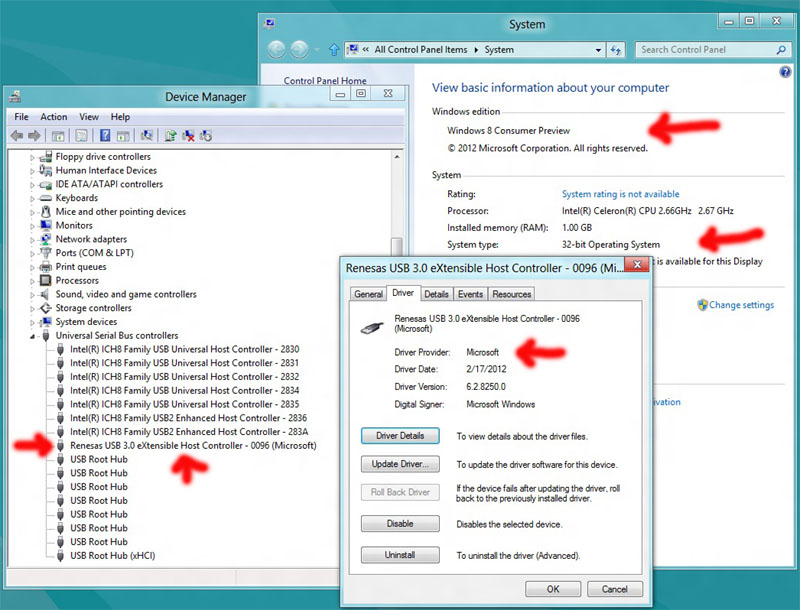
5. Mini PCIe 1394 a+b (LSi 643 chip) in Win8 /32 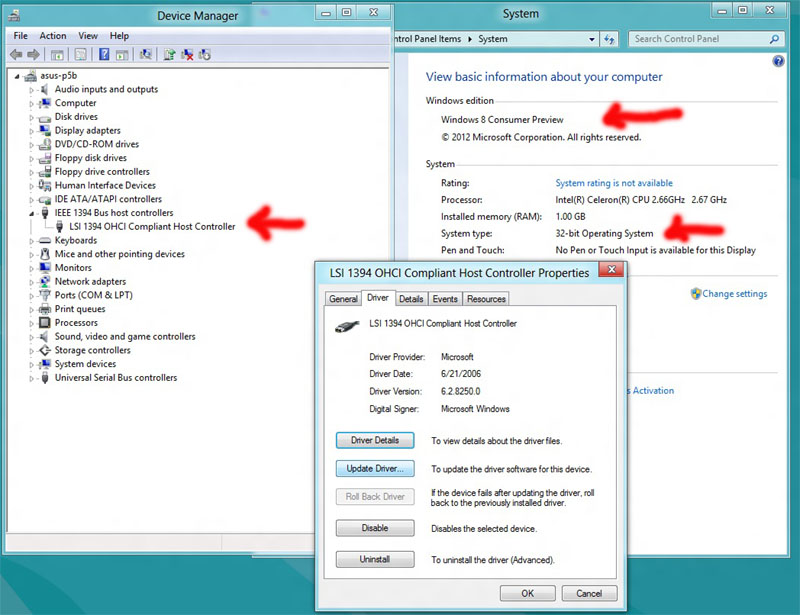
6. Mini PCIe RS422/485 (SystemBase 1052 chip) in Win8 /32 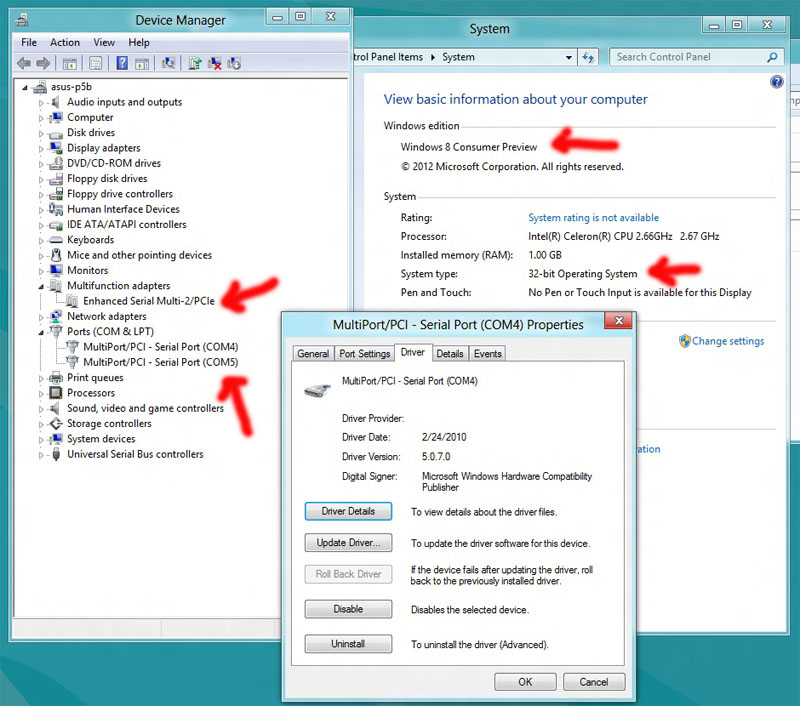
7. Mini PCIe Parallel x1 (Oxford 952 chip) in Win8 /32 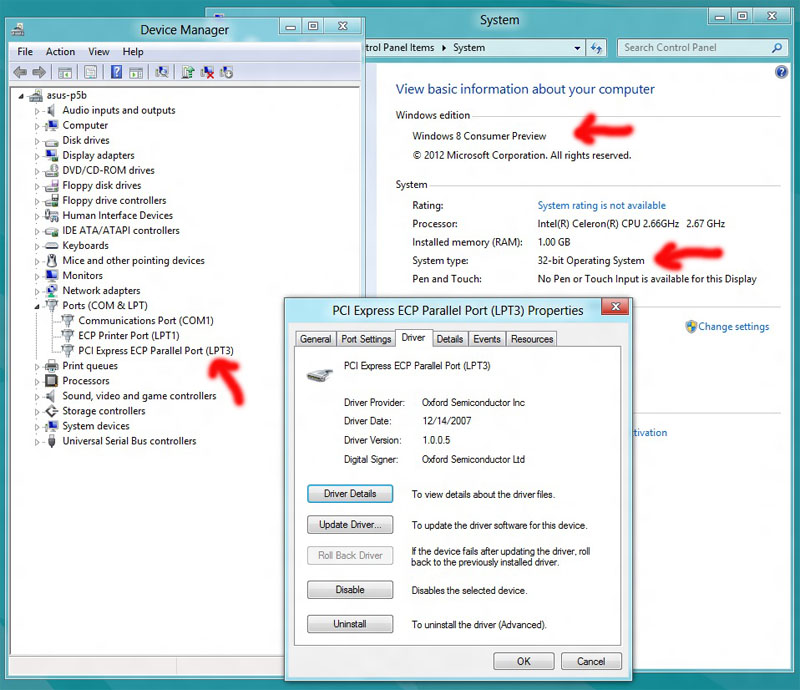
8. Mini PCIe Parallel x1 + Serial x1 (Oxford 952 chip) in Win8 /32 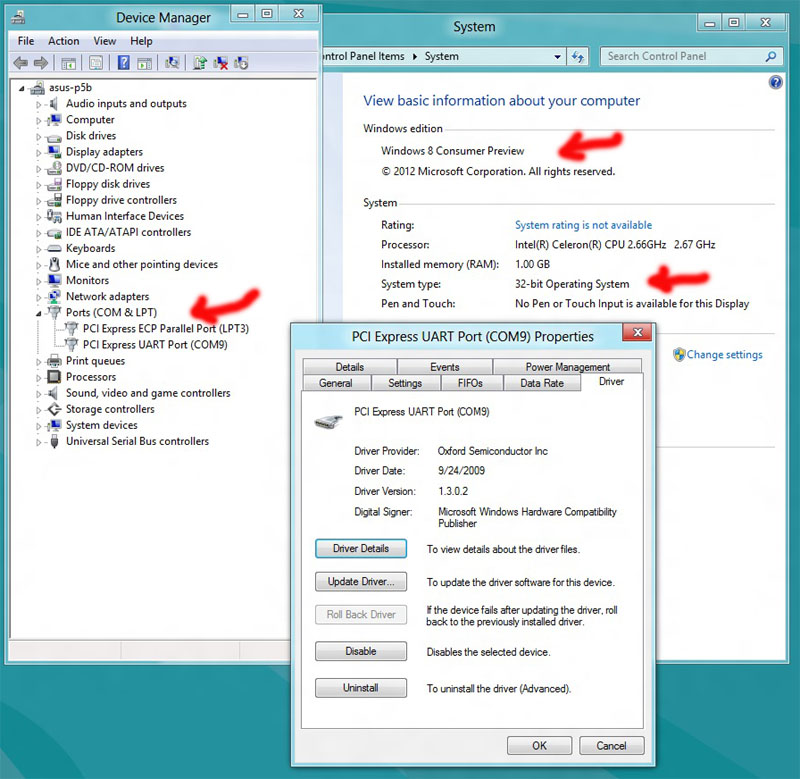
9. Mini PCIe Serial x2 (Oxford 952 chip) in Win8 /32 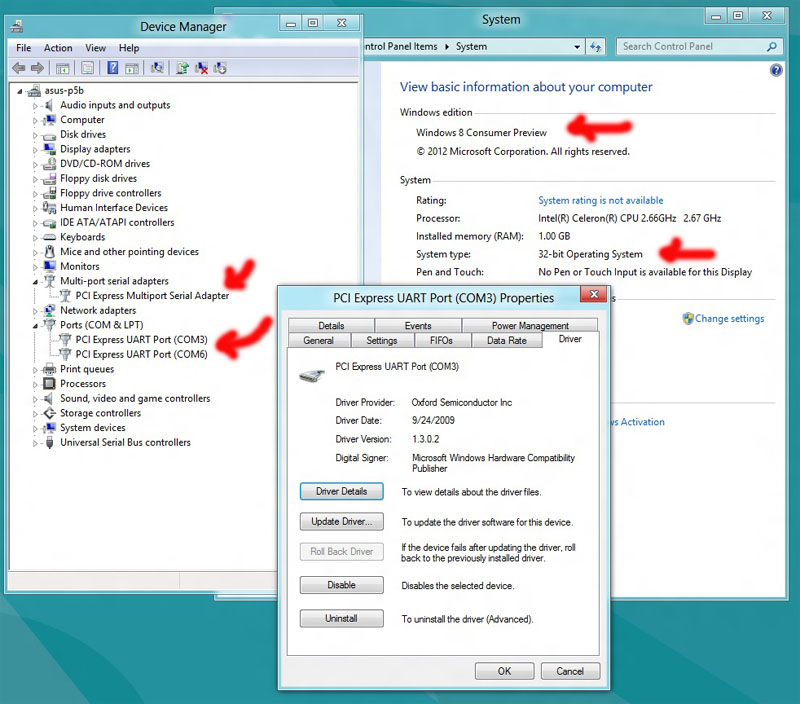
10. Mini PCIe Serial x4 (Oxford 952 chip) in Win8 /32 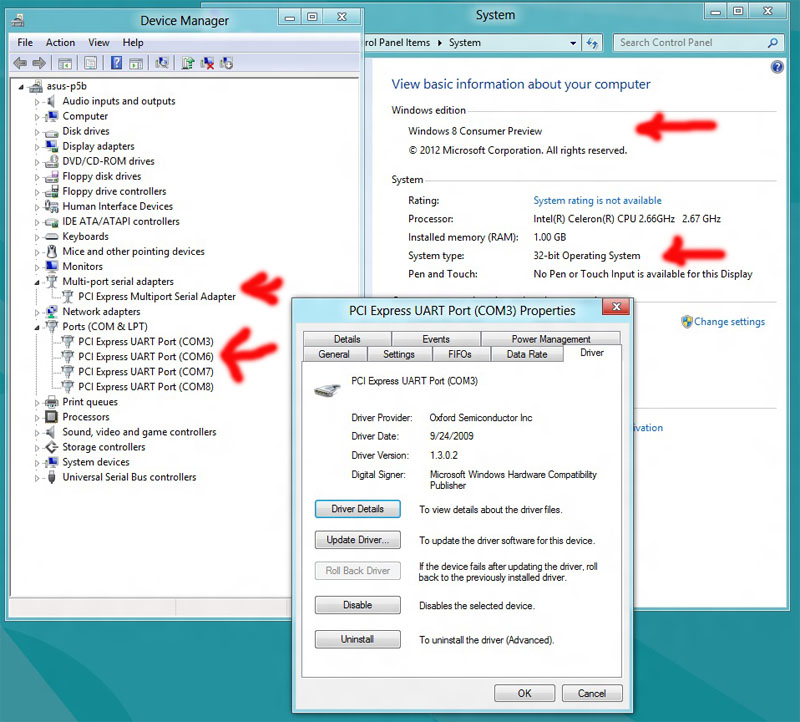
11. Mini PCIe Serial x1 (Oxford 952 chip) in Win8 /32 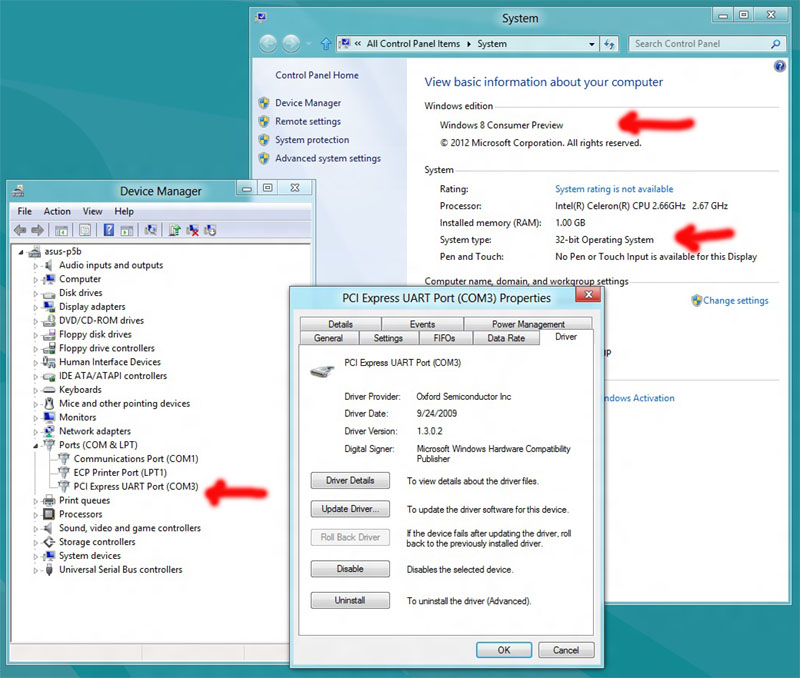
|
|
All of our Mini PCIe card working fine with ASUS P5b mother board , include Mini PCIe SATA III, SATA II, USB 3.0, 1394a+b , Ethernet, Serial x1, Serial x2 , Serial x4 serial x1 +Parallel x1, Parallel x1, 422/485 |
 |
 |
| Win8 Test Products
SATA III SATA II USB 3.0 1394 a+b Ethernet
1P 1S 1S1P 2S 4S 422/485 1. Mini PCIe SATA III (Asmedia 1061 chip) in Win8 /64
2. Mini PCIe SATA II (Silicon Image 3132 chip) in Win8 /64
3. Mini PCIe Ethernet (Jmicron 250 chip) in Win8 /64 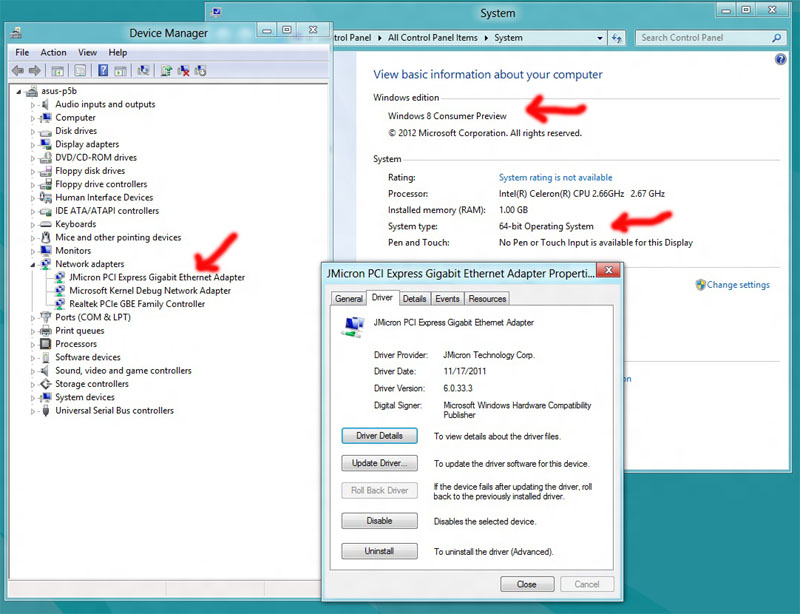
4. Mini PCIe USB 3.0 (NEC 720200 chip) in Win8 /64 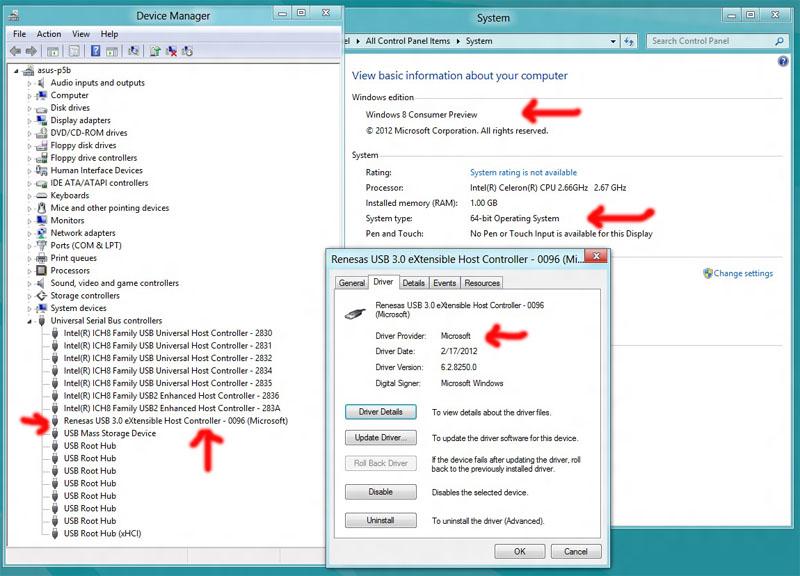
5. Mini PCIe 1394 a+b (LSi 643 chip) in Win8 /64 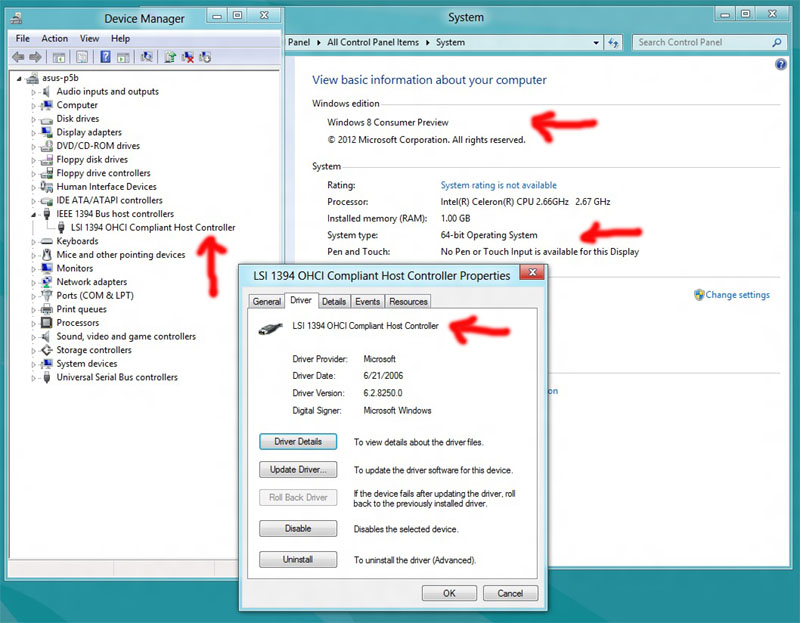
6. Mini PCIe RS422/485 (SystemBase 1052 chip) in Win8 /64 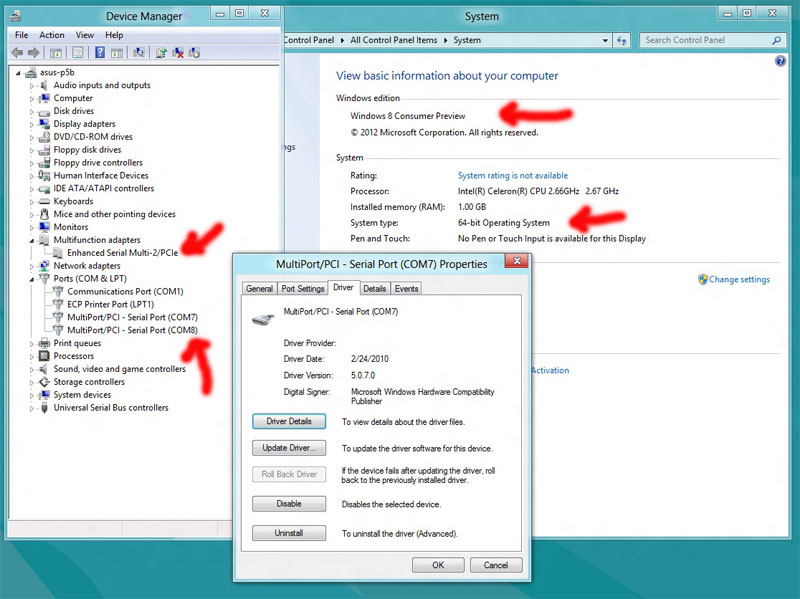
7. Mini PCIe Parallel x1 (Oxford 952 chip) in Win8 /64 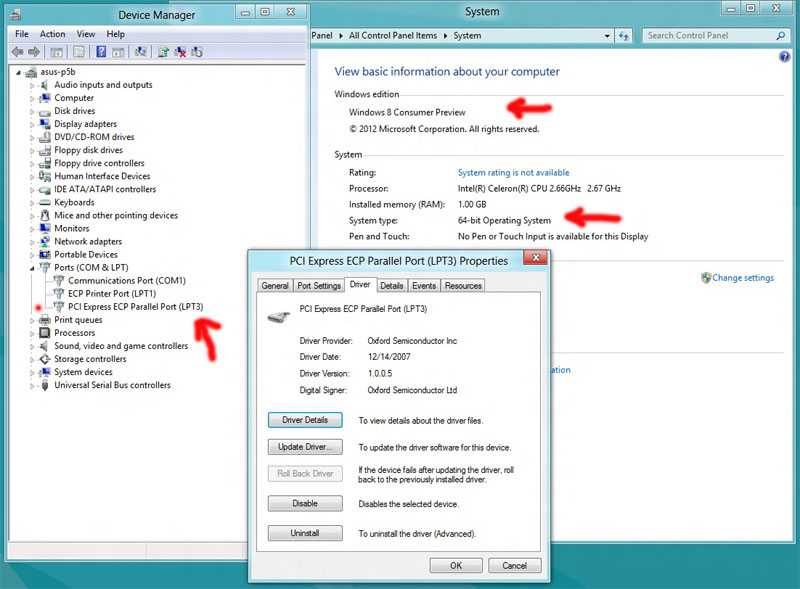
8. Mini PCIe Parallel x1 + Serial x1 (Oxford 952 chip) in Win8 /64 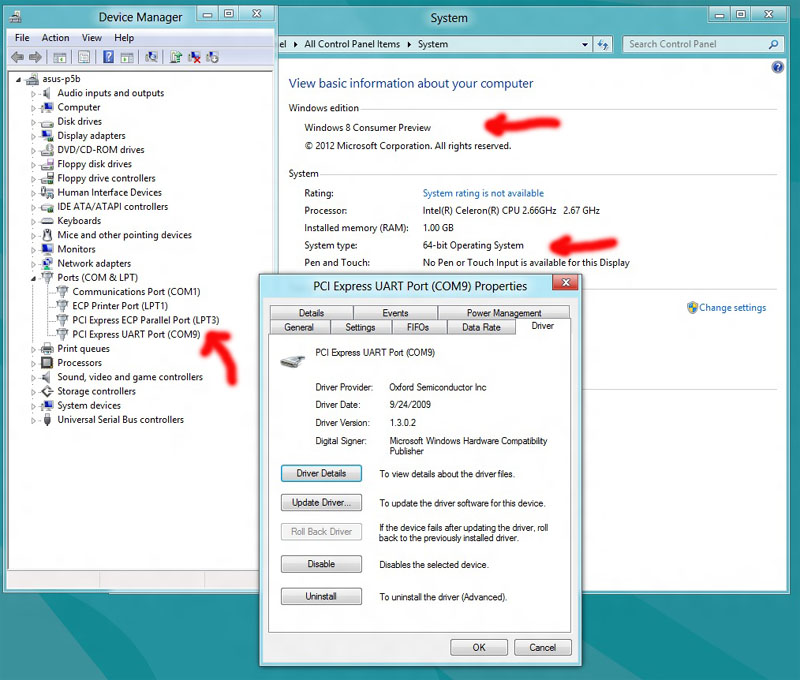
9. Mini PCIe Serial x2 (Oxford 952 chip) in Win8 /64 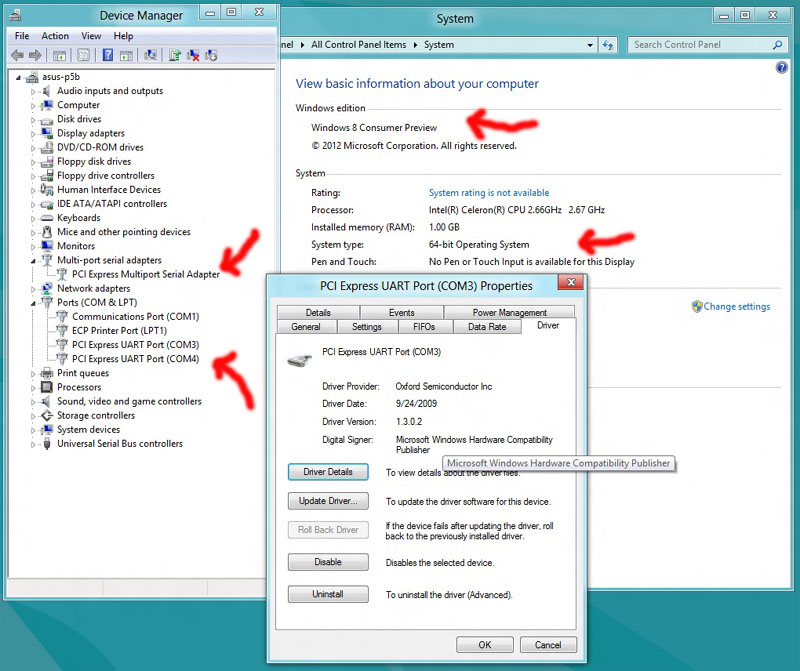
10. Mini PCIe Serial x4 (Oxford 952 chip) in Win8 /64 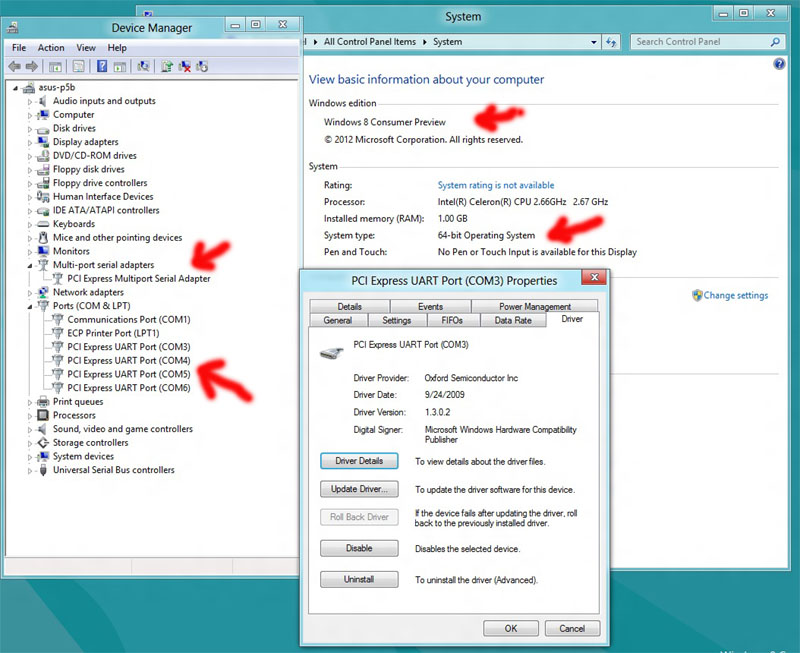
11. Mini PCIe Serial x1 (Oxford 952 chip) in Win8 /64
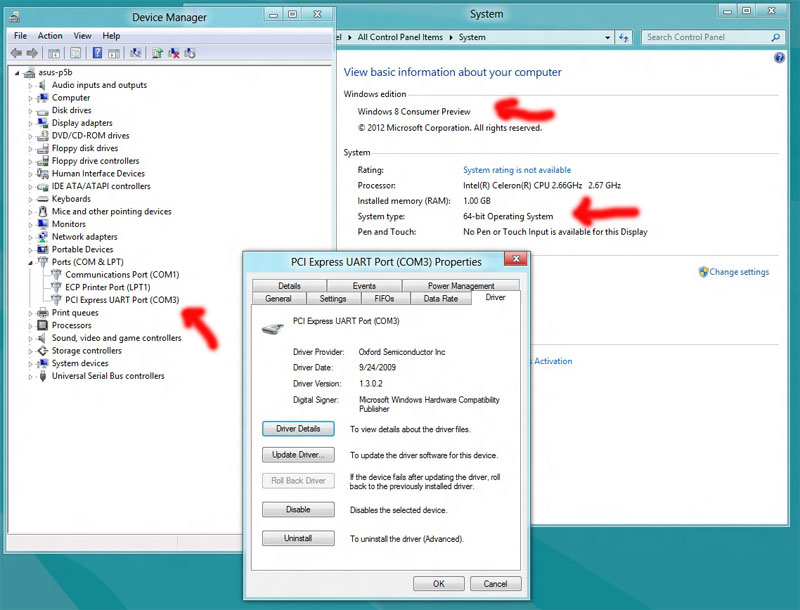 |